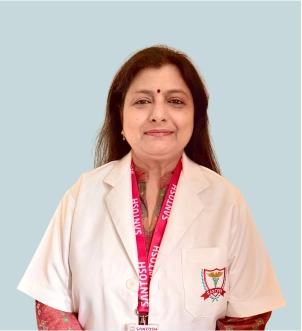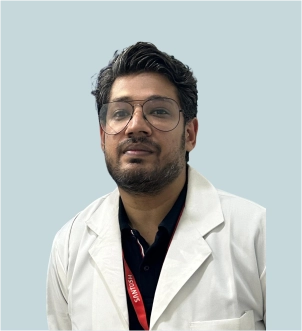
MD Physiology is a postgraduate medical degree programme that focuses on the study of the functioning and mechanisms of various organs and systems in the human body. It is a three-year degree full time programme that is designed to train students in the advanced principles of physiology, medical research methodologies, and the latest medical technologies. The curriculum of MD Physiology is aimed at providing students with a comprehensive understanding of the normal functions of the human body, the mechanisms of various diseases and disorders, and the medical interventions used to treat them. The programme covers various topics such as cardiovascular, respiratory, renal, gastrointestinal, endocrine, and nervous system physiology.
Students will also be taught how to conduct medical research and how to analyse and interpret the results of their studies. The MD Physiology programme is highly research-oriented, and students will have ample opportunities to work on research projects and publish papers in international medical journals. The programme is also designed to provide students with hands-on clinical experience, where they will work alongside medical professionals and gain practical knowledge in the diagnosis, treatment, and management of various diseases and disorders.
Upon completion of the MD Physiology programme, students can pursue careers in medical research, academia, clinical practice, and healthcare management. They can also choose to specialize in a particular area of physiology such as neuro, cardiovascular, respiratory, exercise, sports, reproductive, sleep and space physiology.
The MD Physiology programme is a three-year postgraduate programme. The medium of instruction is English, and the guidelines issued are intended to maintain good academic standards and quality training in medical education. Attendance and progress are monitored, and a candidate is required to put in a minimum of 80% attendance in theory and practical separately. Conduct, punctuality, obedience, and leave guidelines are to be followed by the students. The progress of study is monitored through the work diary/logbook, periodic tests, and micro teaching, participation in seminars, journal club, group discussions, and participation in clinical and clinico-pathological conferences. Special leaves can be granted on the recommendation of the PG Guides & HOD for attending conferences, symposiums, seminars, etc., which will not exceed 10 days.
The Doctor of Medicine (MD) in Physiology is a postgraduate degree program that focuses on the study of the normal functioning of the human body at the cellular, organ, and system levels. The curriculum for the MD in Physiology is following below the points
Theory Examination:
Paper-I: General and Cellular Physiology including Genetic Basis and Historical perspectives:
Paper-II: Systemic Physiology (system providing transport, nutrition and energy) including comparative Physiology.
Paper-III: Systemic Physiology (system concerned with procreation, regulation and neural control)
Paper-IV: Applied Physiology including recent advances
In addition to these core programmes, students may have the opportunity to choose elective programmes based on their specific interests in physiology. Examples of electives may include immunology, pharmacology, or reproductive physiology.
Practical and oral examination:
Practical examination should be spread over two days and include the following components:
Viva-voce examination should include the following components:

Professor & HOD

Associate Professor

Assistant Professor

Assistant Professor
Academic Researcher: Many MD Physiology postgraduates choose to pursue careers in research, working as academic researchers in universities, research institutes, or medical schools. You can contribute to advancing our understanding of human physiology, conducting experiments, publishing scientific papers, and collaborating with other researchers.
Medical Education: With your expertise in physiology, you can pursue a career in medical education. You can become a faculty member in medical schools or other educational institutions, teaching physiology to medical students. This role involves designing curriculum, developing teaching materials, and conducting lectures and practical sessions.
Clinical Research: As an MD in Physiology, you can also engage in clinical research by participating in clinical trials, studying the physiological aspects of various diseases, and exploring potential treatments or interventions. This can be done in collaboration with hospitals, pharmaceutical companies, or research organizations.
Medical Writing and Publishing: Your in-depth knowledge of physiology can be valuable in medical writing and publishing. You can work as a medical writer, creating content for scientific journals, textbooks, educational materials, or healthcare websites. Additionally, you can contribute to medical editing and publishing, ensuring accurate and reliable information is disseminated.
Healthcare Consulting: Your expertise in human physiology can be sought after by healthcare consulting firms. In this role, you may advise healthcare organizations, pharmaceutical companies, or medical device manufacturers on matters related to physiology, patient care, and treatment options.
Clinical Practice: While an MD in Physiology does not directly qualify you for clinical practice, you can still use your knowledge to specialize in a specific area of medicine. For example, you can pursue a residency in a related field such as cardiology, endocrinology, or pulmonology, and integrate your understanding of physiology into your clinical practice.
Biotechnology and Pharmaceutical Industry: Many biotechnology and pharmaceutical companies require professionals with a deep understanding of human physiology. You can work in roles such as medical affairs, drug development, clinical research, or medical communications, contributing to the development of new therapies and products.
Health Policy and Administration: Your expertise in physiology can also be relevant in the realm of health policy and administration. You can work in government health agencies, non-profit organizations, or healthcare management roles, contributing to policy development, healthcare planning, or public health initiatives.
©2026 Santosh Deemed to be University | Designed, Developed & Managed by : HashTAGit. Last updated on 23rd Feb 2026